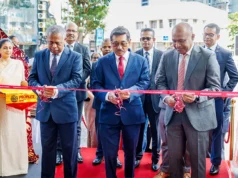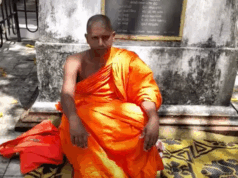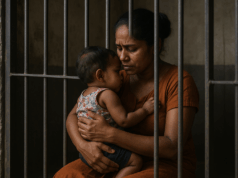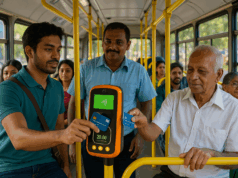By Ifham Nizam
Sri Lanka’s economy, hit by a series of crises, including a foreign currency shortage, fuel and food scarcities and a sharp decline in government revenues, is struggling to emerge from the turmoil. Besides, it has very limited policy tools to provide relief and boost output recovery, Institute of Policy Studies (IPS) Executive Director, Dr. Dushni Weerakoon said.
Speaking at the recent launch of the IPS report, ‘Sri Lanka: State of the Economy 2024’, on the theme, “Economic Scars of Multiple Crises: From Data to Policy,” Weerakoon said the report provides a deep analysis of the country’s recovery efforts and the policy choices that will shape its future.
Some100 representatives of the government, private sector and civil society gathered at the launch to discuss Sri Lanka’s fragile economic recovery, dissect the root causes of its persistent challenges and to debate potential solutions.
While the country is on a path to recovery, it is a delicate one, Weerakoon said.
Weerakoon stressed the need for “marginal changes” in tax and spending policies to address deep-rooted inequalities. These adjustments, she suggested, are the most prudent means to improve living standards in a nation that continues to reel from economic shocks. ‘The State of the Economy 2024’ report underscores the importance of refining policy strategies to ensure that they are both effective and equitable, without derailing the country’s fragile recovery process, she said.
‘The IPS report brought attention to one of the most controversial issues in Sri Lanka’s post-crisis economic recovery: taxation. VAT hikes and the removal of exemptions have disproportionately impacted the country’s poorest, further widening the socio-economic divide, the IPS head explained.
IPS Research Economist, Priyanka Jayawardena said that households in the lowest income decile spend about 10% of their income on VAT, compared to only 6% among higher-income groups.
The findings also show that while direct taxes, such as PAYE and PIT, are progressive—meaning they tax the wealthy more heavily—Sri Lanka is still plagued by high levels of tax evasion. In 2023, less than one-third of the estimated Rs. 131 billion payable in personal income tax was actually collected.
According to Dr. Pulasthi Amerasinghe, Research Economist at IPS, the Aswesuma welfare program adopts more stringent eligibility criteria, making it a more targeted approach to social welfare. Around 54% of former Samurdhi beneficiaries qualify for Aswesuma, reflecting the programme’s improved focus on deprivation indicators across 22 criteria.
However, despite the programme’s refined targeting mechanisms, there remain serious concerns about those left behind. As Dr. Amerasinghe noted, nearly 40% of food-insecure households, a group particularly vulnerable in times of economic crisis, were found to be ineligible under the Aswesuma criteria.
IPS Director of Research, Dr. Nisha Arunatilake, revealed troubling statistics from the Labour Force Survey: 65% of young Sri Lankans aged 20-24 not being engaged in any form of education. This means that a significant portion of the country’s youth is entering the labour market with low or outdated skills, which undermines their ability to compete in an increasingly digital global economy.
Adding to this is the decline in high-skilled employment, which dropped from 23% in 2018 to 20% in 2023. Emigration of skilled workers, drawn by better wages abroad, has resulted in a shortage of professionals in critical sectors, such as, engineering, IT and management.
Suresh Ranasinghe, IPS Research Officer, highlighted this “brain drain” as a significant factor driving down managerial positions in Sri Lanka, which have halved over the past five years. The consequences of this are far-reaching: as skilled talent leaves, the country’s labor market struggles to meet the demands of modern industries, thereby stifling productivity and innovation.








